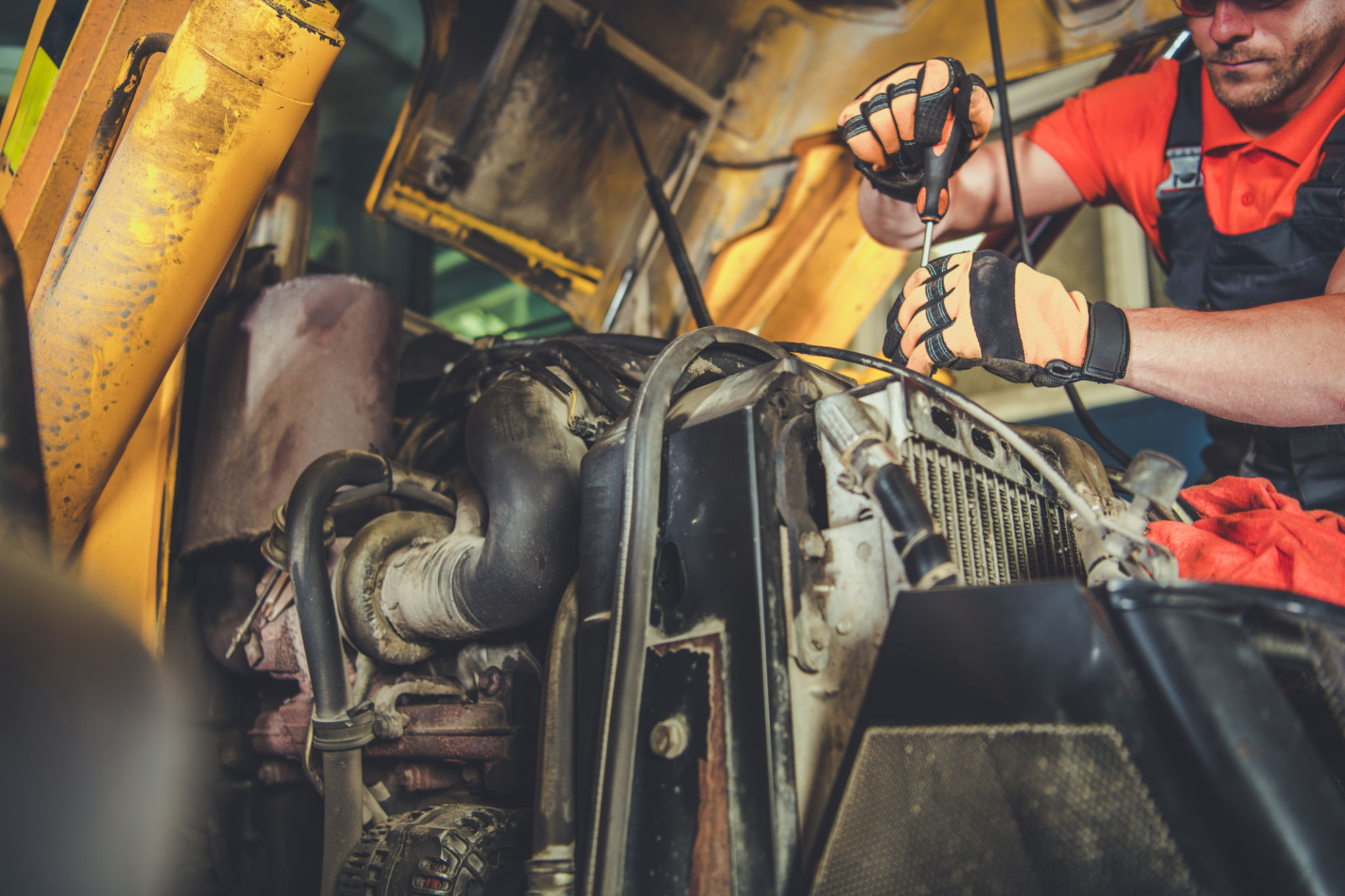Top 5 Myths About Heavy Equipment Repair Debunked
Introduction
Heavy equipment repair is a crucial aspect of various industries, yet there are numerous myths surrounding it that can lead to misconceptions and poor decision-making. In this post, we'll debunk the top five myths about heavy equipment repair, allowing you to have a clearer understanding and make informed choices.

Myth 1: Regular Maintenance Is Unnecessary
One of the most common myths is that regular maintenance is unnecessary and can be skipped. This belief often stems from the idea that robust machinery doesn't need frequent care. In reality, regular maintenance is essential for the longevity and efficiency of heavy equipment. Skipping routine checks can lead to unexpected breakdowns and expensive repairs.
The Importance of Routine Checks
Regular maintenance helps identify potential issues before they escalate into major problems. It ensures that all components are functioning correctly, thus minimizing downtime and maximizing productivity. Investing in maintenance is a proactive approach that saves money in the long run.
Myth 2: Any Mechanic Can Handle Heavy Equipment
Another prevalent myth is that any mechanic can handle heavy equipment repairs. While many mechanics are skilled, heavy equipment requires specialized knowledge and training. These machines are complex, and improper handling can lead to further damage.

The Need for Specialized Technicians
Heavy equipment technicians undergo specific training to understand the intricacies of these machines. Hiring a certified technician ensures that the repair work is done efficiently and safely, reducing the risk of further complications.
Myth 3: Using Generic Parts Is Cost-Effective
Cost-saving strategies often lead businesses to consider using generic parts for repairs. While it may seem financially beneficial initially, using non-genuine parts can compromise the equipment's performance and safety.
The Value of Genuine Parts
Genuine parts are designed specifically for your equipment, ensuring optimal performance and compatibility. They tend to last longer and often come with warranties, providing peace of mind and reducing the likelihood of future repairs.

Myth 4: New Equipment Is Always Better Than Repair
There's a common notion that replacing old equipment with new ones is always the best option. However, this isn't always the case. Repairing existing equipment can be more cost-effective and environmentally friendly.
Evaluating Repair vs. Replacement
It's important to evaluate the condition of your current equipment before deciding to replace it. In many cases, repairs can extend the life of machinery significantly, offering substantial savings compared to purchasing new equipment.
Myth 5: Repairs Are Only Needed When Equipment Breaks Down
Many believe that repairs should only be conducted when equipment breaks down completely. However, this reactive approach can lead to more severe issues and increased costs.
The Benefits of Preventive Maintenance
Engaging in preventive maintenance helps in identifying wear and tear before it leads to a breakdown. Regular inspections and minor repairs can keep the machinery in peak condition, preventing costly downtime and enhancing safety.
Conclusion
Understanding the realities of heavy equipment repair is crucial for maintaining efficiency and minimizing costs. By debunking these myths, businesses can make informed decisions, ensuring their machinery remains reliable and operational for years to come.